Sabbatical reflections
Bill Dennison · | Learning Science |Spending six months away from home and away from the normal work environment was a privilege that not many people have the opportunity to experience. It is one of the substantive 'perks' of academia for those who choose to avail themselves of this opportunity. While it does take considerable energy to move house and office and get set up in a foreign land, the opportunity to view what you do from outside your normal world provides invaluable perspective. It also allows for the development of new or nascent skills and to contribute to science in different ways with different people.
Many consider a sabbatical a time for quiet reflection, but I chose a rather noisy period of 'doing', which may allow for reflection in the future, but I felt that I had some unique opportunities to contribute to Australian science and environmental management. Part of this sabbatical strategy was dictated by the timing. We arrived the day before historic flooding in Southeast Queensland and I had the opportunity to contribute to the assessment of impacts and strategies for mitigation. In addition, the entire Queensland coast, particularly the Great Barrier Reef watershed, was affected by flooding and a massive cyclone. I also was able to work closely with my long time friend and colleague Dr. Peter Oliver on a book that we are writing together.
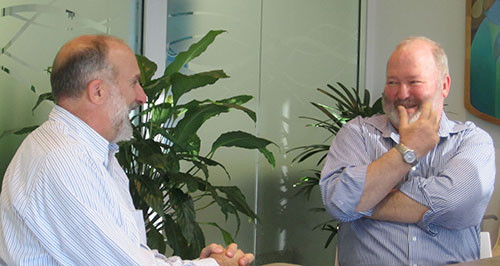
The other thing that became evident during the course of my sabbatical was the opportunity to catalyze the development of environmental report cards around Australia. I was able to reengage with the Healthy Waterways report cards in Southeast Queensland, which I was involved with setting up over a decade ago. In addition, I continued to work with various colleagues in Queensland on the Great Barrier Reef report card, which we have been working on for some time. But the exciting new opportunities were in Western Australia, Victoria and New South Wales where I talked with scientists in various government agencies about creating estuary report cards using various environmental data. It became apparent to me that we could actually start assessing estuaries throughout Australia using a common approach, but with different indicators and thresholds for different regions. In many ways, this was much more satisfying and ultimately both useful and sustainable than the considerable effort that we conducted for the audit of Australia's estuaries (see 'Two guys and a tinny' blog).
There were several key aspects that were crucial in making my sabbatical a success. First was the excellent hosting arrangements, spearheaded by Barry Ball and Eva Abal at the International WaterCentre and supported by Mark Pascoe (IWC CEO) and Professor Paul Greenfield (University of Queensland Vice Chancellor). They provided office space and access to resources that were crucial for the sabbatical. The International WaterCentre was an unusual choice, as most sabbaticals are conducted on the main campus of a major university. The IWC offices were crowded and somewhat chaotic in a downtown setting, yet this proved to be an exciting place to work with fun and interesting people. The visitors to IWC were exceptional and the somewhat corporate office building setting was counter balanced by the wonderful people who work there. It was the first time in my life that I worked in an urban office, away from a college campus, and I enjoyed exploring Brisbane during lunch breaks and having a diversity of good inexpensive food to choose from (the only bargain in Australia, considering the sinking US dollar exchange rate and the booming Australian economy).
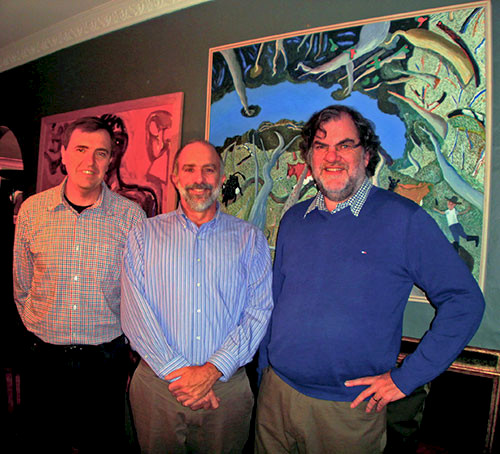
A bonus of doing my sabbatical in Queensland was that I was able to catch up with former students and colleagues. At a party hosted by Paul Greenfield, I was able to visit with my former mentor (Paul Greenfield, former University of Queensland Vice Chancellor), my former inspiration (Jim Soorley, former Brisbane Lord Mayor) and my former colleague (Dr. Eva Abal, my first PhD student).
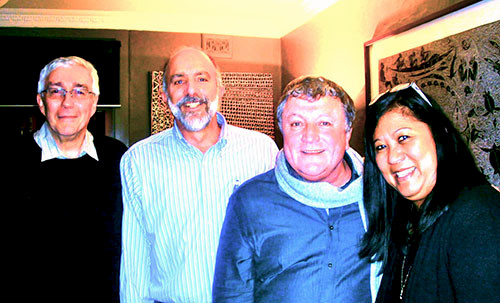
Another important aspect for my productivity was access to a talented Science Communicator, Kate Moore. I dragged Kate with me to Mackay, Melbourne and Perth and she also helped me out with a variety of projects. Kate was both fast and efficient but also good company on trips where I would have been navigating and eating alone. Kate is in the elite company of the past and present IAN Science Communicators who can take a rough concept through the process of data acquisition, analysis, image acquisition, creative design and layout all the way through to final production of an attractive, content-rich document.
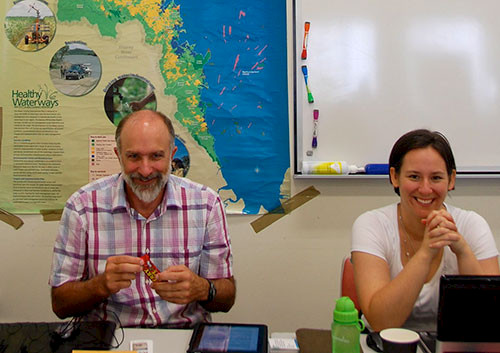
The other important sabbatical support was the University of Maryland Center for Environmental Science, particularly Don Boesch and Dave Nemazie, and the entire Integration and Application Network. Keeping things moving forward at UMCES and IAN, particularly with unanticipated personnel changes was crucial, and in spite of many Skype and Gotomeeting early mornings on my part, the burden was largely on the UMCES and IAN staff who rose to the challenge. I could focus on sabbatical initiatives only because of the support from UMCES and IAN staff, and I am indebted to them for their professionalism, expertise and unfailing good humor. I would have never been able to Darwin Harbour or the Peel-Harvey estuary in Western Australia, dance with dugongs in Brisbane, take a crash course in flood impacts, and hang out with Peter Oliver.
One of the aspects of spending a defined period of time at a location is that it forces a prioritization and encourages you to seize opportunities rather than putting them off. There were various opportunities that we did not have time to do, but we were able pack in quite a bit in six months. Upon reflection, a 'noisy' and active sabbatical was exactly what I needed and while I did not achieve what I anticipated I would achieve, the unique opportunities and fantastic collaborations were more than I expected.
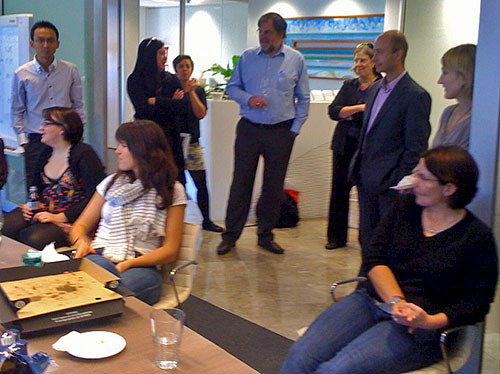
About the author
Bill Dennison

Dr. Bill Dennison is a Professor of Marine Science and Vice President for Science Application at the University of Maryland Center for Environmental Science.